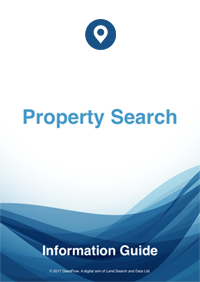Adverse Possession UK
Contents
Article Summary
This article examines the difference between claims for adverse possession in respect of registered land and unregistered land, describes the necessary ingredients to form a successful application and illustrates the usual forms of defence.
What is Adverse Possession?
Adverse possession is the claim by a person (squatter) that he is the lawful owner of a parcel of land that he has no Deeds to, nor any registered documents, i.e. a claim that he should be entitled to be the owner notwithstanding it is owned by someone else (whether or not that person can be identified). The law so far as registered land is concerned has changed substantially following the Land Registration Act 2002, Schedule 6. This change makes it difficult for a person to claim ownership where the property is registered. Accordingly, the first action to take is to check whether or not the land is registered.
Checking if the Land is Registered
An application for a Title Register search is the most efficient way to discover if the land is already registered. Sometimes if may seem that it is not registered because a simple search will not disclose it. However, there could be other reasons for this, such as the property being included with a bulk registration, all on one title, or because the property has no postal address and requires identification with a map.
When we receive a search instruction and cannot at first discover if the Title is registered we will then look at the Index Map to see if it is registered with other Titles, and also to see if there is a claim already pending such as a Caution Against First Registration (which would have been made by another party claiming an interest in the property). If a Map-based search is required we have a separate application form for this, so that the property is identified on the application form sufficiently enough for us to identify it.
Registered Owner
The registered owner is the legal owner. If the land is registered the B section of the Title Register will state the name and address of the owner, who may then be contacted by the squatter with a view to purchasing the property.
Limitation Period
A squatter is not able to claim adverse possession unless he has been in continual possession of the property for a period of 12 years, in the case of unregistered land, or 10 years in the case of registered land. However, being in adverse possession by itself, where the land is registered land, will not on its own entitle the squatter to his claim.
Owners to keep their Contact Details up to date
A demonstration of the importance of property owners keeping their contact details up to date is illustrated by the fact that where a squatter claims adverse possession of registered land the Land Registry will serve notice of the application on the owners thereof. If their contact details are not up to date they may not receive the notice, and may be unaware of the claim.
Read more about checking and changing your address at the Land Registry.
What constitutes Possession of Land
This will always depend on the circumstances. Generally, however, it should be shown that the squatter has been dealing with the land throughout the possessory period as though it were his own. Possession of the land with the owner's consent is not adverse possession and cannot form the basis of such a claim.
Defending the Application
Where the land is registered and the registered owner objects to the application it will be rejected, unless the owner should be estopped from doing so because it would be unconscionable so to do, for example, if the registered owner allowed the squatter to believe he owned the land, and in so believing, acted to his detriment, to the knowledge of the owner.
Where the squatter owns the adjoining property, and the claim originates as the result of a boundary dispute in which the squatter was under the mistaken belief that he owned the disputed land, and provided the boundary is not a determined boundary, and provided also that the property was registered more than a year prior to the claim, then the claim will not be rejected. Presumably an application will then be made for the boundary to be determined.
Squatter remaining in possession after the claim is rejected
If the squatter remains in possession for a further 2 years after the claim is rejected then he can apply again, and this time the application will be accepted, whether or not it is opposed.
Claim not Defended
Where the claim is not defended the squatter will be successful in his application for registration so long as he can prove continuous possession during the requisite 10 year period.
Title Register
The Land Registry Title Register holds data relating to the property ownership, purchase price, mortgage, tenure, covenants, rights of way, leases and class of title.
£19.95Title Plan
The Title Plan shows an outline of the property and its immediate neighbourhood, and uses colours to identify rights of way, general boundaries and land affected by covenants.
£19.95Associated Documents
Deeds creating Restrictions, Covenants, Easements, etc. are often kept digitally by the Land Registry and made available for sale due to their invaluable detail and content to assist in further understanding the Restrictions, etc.
£29.95


